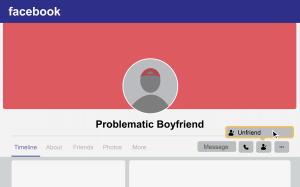How Left-Leaning News Organizations Can Lead to the Truth
A conversation with the Gravel Institute on increasing media literacy among members of the American public
COURTESY OF HENRY WILLIAMS
Co-founders Mike Gravel and Henry Williams created the Gravel Institute to help people improve themselves and their communities.
May 4, 2022
A quick glance at the state of American politics and media can leave one feeling a bit fried. Vehement bigotry is packaged as traditional values, and blatant hatred can easily be disguised as the morning news. Though there seems to be as much information as misinformation being circulated, solace can still be found in American media in the well-cited, properly sourced outlets of the highly scrutinized left.
One such source is the Gravel Institute, a young media organization devoted to combating misinformation. Like many of its peers, the Gravel Institute often draws straight from academics themselves, painstakingly citing every statistic, claim and piece of evidence. This practice is refreshing and much easier to follow than some of the emotionally motivated content of the foremost news centers (like Tucker Carlson and PragerU). American media literacy hinges on our ability to hold information to a higher standard, and that’s exactly what is delivered in many leftist spaces, like the Gravel Institute, more than in right-leaning ones.
Recently, I had the privilege of interviewing one of the co-founders of the Gravel Institute, Henry Williams. A Columbia student and lifetime activist, Williams convinced Mike Gravel, his cofounder, to run for president in the 2020 race and, in turn, was a part of the genesis of the Gravel Institute.
While PragerU remains heavily influenced and controlled by its donor network, the Gravel Institute remains relatively in control of its content.
While the institute’s current audience is very young — with a majority in the 18-30 age bracket — it’s founder, Mike Gravel, was an elderly senator from Alaska who lived the institute’s mission until his death last year.
The Gravel Institute is completely crowdfunded. It averages an annual budget of a few hundred thousand dollars, unlike PragerU whose budget clocks in at around $40 million. While PragerU remains heavily influenced and controlled by its donor network, the Gravel Institute remains relatively in control of its content.
To reformat such ideas, especially to those radically opposed, is no easy task, and the institute has to fight an uphill battle. For every video they make, all information used is carefully researched and cited and is often presented by the very academics themselves. American media literacy is at an all-time low, with the general populace often having short attention spans and an inability to digest the dense, scholarly information that is associated with politics and the systems of our government.
Mainstream media has become essential to our political life, leading to corporate, for-profit organizations being in charge of the “truth,” which is now a direct reflection of the interests of the highest bidder.
In our conversation, Williams was very clear that Americans have very good reasons to distrust authority, especially after former President Donald Trump’s presidency and the past 50 years of American history. Mainstream media has become essential to our political life, leading to corporate, for-profit organizations being in charge of the “truth,” which is now a direct reflection of the interests of the highest bidder.
Williams described the Gravel Institute’s approach to fighting this lowered media literacy as addressing the material bread and butter things that drive politics in layman’s terms (ironically), targeting the issues of everyday Americans that don’t require a master’s degree to be able to unpack. The strength of our communities, infrastructure and quality of life are more aligned with the priorities of the average person. Questioning what drives these things and how we can improve them creates unity, especially across partisan and class lines.
The Gravel Institute’s content speaks to people’s deep material interests and transcend biases and preconceived notions about politics for the sake of bettering their audience, their communities and their families.
In our conversation about misinformation, I asked Williams how an organization as clearly politicized as the Gravel Institute could claim to combat misinformation while taking a side. He responded with a profound dissection of the truth itself. Can there exist a truth that is disinterested? Or unbiased? Is there truth that doesn’t take a stand or create some sort of argument? The Gravel Institute doesn’t seek to slander or generate publicity; instead, they seek to educate. During the interview, Williams spoke on the Gravel Institute’s commitment to its consumers and the impact of the organization’s work.
Williams explained that he agrees with the organization’s media literacy efforts, and he also believes that the organization has a responsibility to educate consumers who have no previous knowledge on certain issues. He believes that just exposing people to different ideas can help them have a better understanding of current events and give them the opportunity to navigate issues on their own.
For example, slavery, an integral and horrible part of American history, is something that is universally condemned, so is its existence one for debate on how it reflects morally? No, the truth of its occurrence is morally reprehensible, and it is inherently an inhumane practice. Historically, there is a right side to be on, and that is the truth the Gravel Institute seeks to illuminate.

It would be dishonest, however, to present the truth and say that it comes without bias because there is no such thing as an unbiased truth. While their competitors like PragerU maintain they have “no political view/affiliation,” Gravel is upfront about its ideas, and it backs up everything it says with scholarly evidence.
The Gravel Institute is a stalwart new institution of the left, created to try and emulate the hyper-organized, highly entrenched right. They exist to keep the fight that Mike Gravel started going. While his time may have passed, the fight is very much alive in this organization. Looking forward, the institute seeks to regroup and rebrand the left in a new age with a powerful base of young voices steadily waking up to change the broken systems they face.

















Jack L. • Nov 18, 2022 at 7:03 am
It is a pity Mr. Eraca did not ask about the anti-Ukraine video the Gravel Institute made. Not that I don’t like the Gravel Institute. I just wonder why the institute thought that “the Ukrainian government is brimful with neo-Nazis” would be a good message to spread.
Joe • Oct 29, 2023 at 5:41 am
Because they’re a bunch of America = Bad, Tankies.